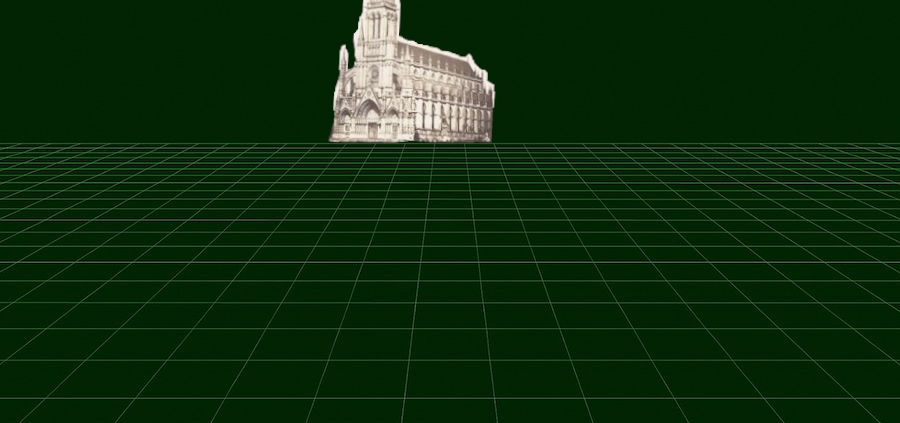Mass Media by William Droel
Marshall McLuhan (1911–1980) was a pioneer in media studies. Yet he is largely ignored in our day of omnipresent media. Digital Communion by Nick Ripatrazone (Fortress Press, 2022) sets out to revive McLuhan through a focus on his Catholic faith. His book takes on new valence as Covid-19 has accelerated our churches’ use of streaming and other audio-visual tools.
McLuhan died before our universal use of mobile devices and laptops, before social media, and before niche TV channels. Thus, some might say, he is irrelevant today. He is an entertaining writer, but—at least to some—he feels frivolous. He offers zingers, “probes,” and “explorations” without sustaining an argument. Readers might prefer “polished sentences and learned syntaxes,” Ripatrazone explains. A long, logical presentation, however, “can trick us into thinking that stylistic writing equals intellectual certainty, but McLuhan felt such an approach stymied inquiry.” Instead, McLuhan’s books are peppered with cartoons, reproductions of advertisements, provocative one-liners, discursive illusions to literature, and more. “I don’t explain, I explore,” McLuhan said.
Perhaps McLuhan is neglected because his central idea was never well understood. For example, parents and teachers are wary about content on social media or on various websites. Others are concerned about how information is presented by TV commentators. McLuhan’s interest in media was different. His tagline was “The medium is the message.” The primary concern, he believed, is not content. It is the technology itself. Simply having a mobile device in one’s pocket changes the environment. A laptop or a TV in the house, no matter what website is accessed or what channel is tuned in, changes its user and the environment. And a mounted screen inside a church changes worship, regardless of what is projected.
McLuhan, contrary to a prevalent assumption of his time, was not a cheerleader for each new invention. He wanted his audience to be aware that the use of a technology conforms them to that technology and that, especially with screens, media has the power to anesthetize.
Yet McLuhan decidedly was not a prophet of doom. He had a Catholic sensibility, Ripatrazone writes. Our experience of the world comes to us “in disparate images, experiences and ideas.” And to McLuhan and others who share a sacramental imagination, it is all unified by God. Our world is full of grace, though flawed by sinful people and their wayward institutions. McLuhan’s challenge is to look not only for the message but for the nature of the medium (positive and negative) in each of our encounters. Media effect a change, Ripatrazone says, not only through the content we receive but in the way we think and act.
Well then, what about churches installing giant screens on both sides of the altar? Isn’t that in keeping with the so-called “new evangelization”? What about putting the parish bulletin online? After all, isn’t that where the young adults are? And what about live-streaming the Mass for months to come?
Ripatrazone concludes with an observation from Fr. Anthony Lusvardi, SJ, who maintains a blog about the liturgy. Covid-19 necessitated some limitations on worship and consequent broadcasts of the Mass. The productions varied in sophistication and ease of access. There was and remains ambivalence about it all. Fr. Lusvardi is disturbed about fitting the Mass “within the parameters of the broadcast.” Ripatrazone asks: Is a Mass mediated through technology really participation in the sacrament? Doesn’t a “digital communion” turn the Eucharist into pictures of bread and wine, and thereby turn worship into a passive show watched by people isolated in their dens? If technology individuates, what happens to community during a broadcast Mass?
McLuhan did not necessarily denounce the latest. His advice was to delve deeper into how each technology changes us culturally, personally, and theologically. In this light, we are right to ask what the long-term consequences are for a sacramental faith when its churches lean into cyber-technology. ♦
William Droel is the editor of Initiatives, a printed newsletter on faith and work (sign up for a free subscription here), and the author of Monday Eucharist, available from the National Center for the Laity (PO Box 291102, Chicago, IL 60629; $7).





Leave a Reply
Want to join the discussion?Feel free to contribute!